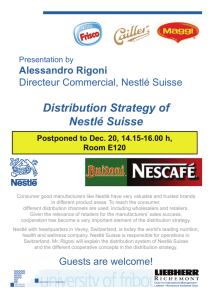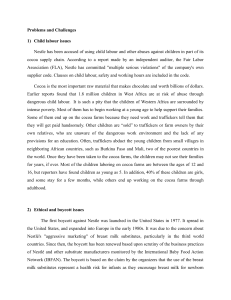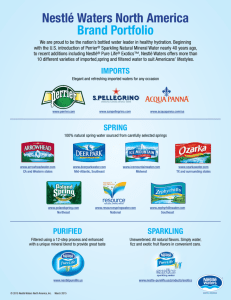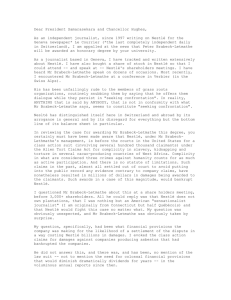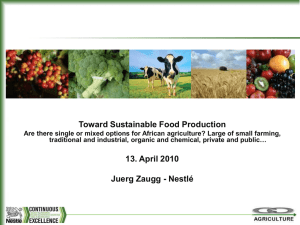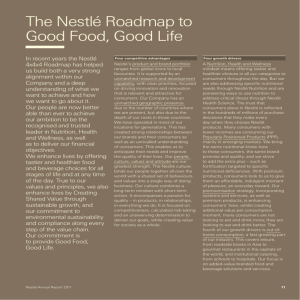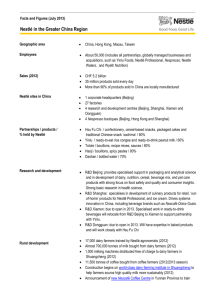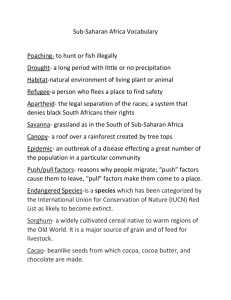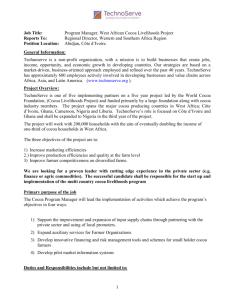PSI database case study
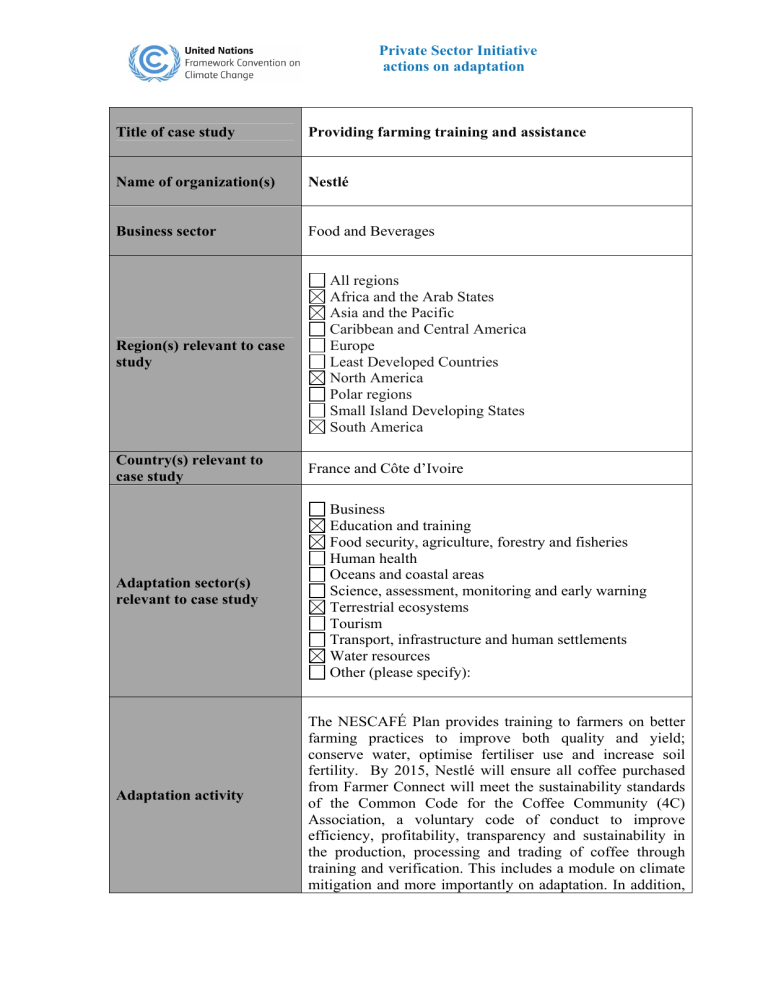
Title of case study
Business sector
Private Sector Initiative actions on adaptation
Name of organization(s)
Providing farming training and assistance
Nestlé
Food and Beverages
Region(s) relevant to case study
All regions
Africa and the Arab States
Asia and the Pacific
Caribbean and Central America
Europe
Least Developed Countries
North America
Polar regions
Small Island Developing States
South America
Country(s) relevant to case study
France and Côte d’Ivoire
Adaptation sector(s) relevant to case study
Adaptation activity
Business
Education and training
Food security, agriculture, forestry and fisheries
Human health
Oceans and coastal areas
Science, assessment, monitoring and early warning
Terrestrial ecosystems
Tourism
Transport, infrastructure and human settlements
Water resources
Other (please specify):
The NESCAFÉ Plan provides training to farmers on better farming practices to improve both quality and yield; conserve water, optimise fertiliser use and increase soil fertility. By 2015, Nestlé will ensure all coffee purchased from Farmer Connect will meet the sustainability standards of the Common Code for the Coffee Community (4C)
Association, a voluntary code of conduct to improve efficiency, profitability, transparency and sustainability in the production, processing and trading of coffee through training and verification. This includes a module on climate mitigation and more importantly on adaptation. In addition,
by 2020, Nestlé will procure 90,000 tonnes of green coffee compliant with Rainforest Alliance and Sustainable
Agriculture Network (SAN) principles.
The Cocoa Plan provides farmer training and assistance on more efficient, sustainable farming methods, such as the effective pruning of trees, fermentation and drying of beans.
It also provides plant expertise - improving the quantity and quality of yields by providing 12 million stronger, more productive plantlets over the next 10 years.
Nestlé Research and Development (R&D) Centre in
Tours, France, works with its sister R&D Centre in
Abidjan, Côte d’Ivoire, as well as other research institutes to produce large quantities of first- class cocoa plants that are stronger, less vulnerable to disease and potentially yield twice or even more than average trees in cocoa farms today, once they reach full productivity around four or five years after planting. These more resilient plants will be better adapted to deal with the current and projected impacts of climate change.
Cost-benefit
Over the next ten years Nestlé will invest CHF 110 million in the Cocoa Plan and CHF 350 million in the NESCAFÉ
Plan. The farmer programmes help farmers to improve the quality of their yields and to diversify their activities, giving them higher incomes and improving their living standards; provide Nestlé with a reliable supply of high-quality raw materials; and bring sustained growth for the local economy.
Click for further information on The Cocoa Plan
Click for further information on The NESCAFÉ Plan
Click for further information on Nestle’s R&D work in Côte d’Ivoire
Disclaimer: These business cases have been cited to raise awareness about the engagement of the private sector in climate change adaptation. The information in the business cases has been provided either directly by the organization or obtained from a public source. The UNFCCC secretariat has not verified the information and takes no responsibility for it. Users are therefore advised to verify the information before they take any action relying on the information provided in the business cases.
2
Farmer field schools supported by Nestlé train farmers to improve their cocoa harvest
Source: Nestlé
A 3-year-old higher quality cocoa tree maturing in an Ecuadorian R & D centre before being distributed to farmers by their local cooperative
Source: Nestlé
Disclaimer: These business cases have been cited to raise awareness about the engagement of the private sector in climate change adaptation. The information in the business cases has been provided either directly by the organization or obtained from a public source. The UNFCCC secretariat has not verified the information and takes no responsibility for it. Users are therefore advised to verify the information before they take any action relying on the information provided in the business cases.
3
